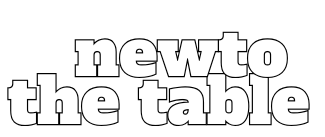Deciding whether to buy a home or rent an apartment is like choosing between a cozy blanket and a fancy jacket. Both have their perks, but one might just be the perfect fit for your lifestyle. While homeownership promises the freedom to paint walls any color you like (even neon green if that’s your thing), renting offers the flexibility to pack up and move at a moment’s notice—no need to hire a moving truck every time your taste in decor changes.
In today’s housing market, the choice isn’t just about finances; it’s about lifestyle. Do you crave stability and the pride of ownership, or does the thought of a landlord handling repairs make you sigh with relief? Let’s dive into the pros and cons of each option to help make the decision a little less daunting and a lot more fun.
Table of Contents
ToggleOverview of Buying a Home vs Renting an Apartment
Buying a home offers long-term investment potential, allowing individuals to build equity over time. Homeownership often comes with the freedom to personalize living spaces without restrictions. Customizing interiors and exteriors becomes easier with your own property. In contrast, renting an apartment provides flexibility, making relocation simple without the burdens of selling a property. Temporary residents can enjoy the benefits of various amenities typically offered in rental agreements.
Monthly costs often differ significantly between the two options. Homeowners typically face mortgage payments, property taxes, and maintenance costs. Renters usually deal with a fixed monthly rent and perhaps utilities, contributing to predictable budgeting. Long-term financial rules reveal that buying a home often leads to cost savings over time due to increasing property values.
Choosing between these two living arrangements involves assessing lifestyle priorities. Stability often factors into the homeownership equation, with individuals desiring a permanent residence. Alternatively, flexibility attracts those who prefer to move locations or adapt to changing careers. Personalized space and homeowner responsibilities contrast with the freedom from maintenance and repairs that many renters appreciate.
Market conditions play crucial roles in the decision-making process. Real estate markets can fluctuate significantly, affecting home prices and rental rates. Researching local trends is essential to understanding the best choice for one’s financial future. Both options present unique advantages and challenges, making the decision a nuanced one.
Financial Considerations

When evaluating the financial aspects of buying a home versus renting an apartment, several key factors emerge. These factors include initial costs and ongoing expenses, which significantly impact overall financial planning.
Initial Costs
Homeownership involves substantial initial costs. Buyers often face down payments that can range from 3% to 20% of the home’s purchase price. These costs add up quickly, especially in a competitive market. Additionally, closing costs, which usually amount to 2% to 5% of the loan amount, should also be factored in. Obtaining a home inspection is another expense that arises before finalizing any purchase. Renters typically incur lower initial costs, primarily consisting of the security deposit, which usually equals one month’s rent, along with the first month’s rent. While renting has lower hurdles to entry, the potential for long-term investment increases with homeownership.
Ongoing Expenses
Ongoing expenses present another crucial difference. Homeowners generally manage mortgage payments, which often include principal, interest, property taxes, and homeowners’ insurance. Those payments can shift with property tax assessments and interest rates. Maintenance costs also accumulate, where home maintenance averages around 1% to 3% of a home’s value annually. In contrast, renters usually deal with fixed monthly rent and utilities, leading to more predictable budgeting. Renters may still need to consider renters insurance and potential rent increases, but overall, their expenses tend to be more manageable compared to homeowners, allowing for flexible financial planning.
Flexibility and Commitment
Flexibility and commitment play crucial roles in deciding between buying a home and renting an apartment.
Long-Term vs Short-Term Options
Homeownership represents a long-term commitment, benefiting those who plan to stay in one location for extended periods. Buyers often build equity, offering financial security over time. Renting serves as a short-term solution, ideal for those who value mobility. Individuals can relocate easily when facing job changes or personal milestones. Renters typically sign leases lasting 12 months, allowing quick adjustments in living situations. Buyers, on the other hand, invest significant upfront capital, like down payments, to secure their property.
Lifestyle Considerations
Lifestyle influences the choice significantly. Property owners enjoy the freedom to customize their spaces, reflecting personal tastes and preferences. They may also engage in community ties and contribute to local improvements. Renters prioritize convenience and maintenance support, enjoying amenities like pools and fitness centers that often accompany rental properties. They also avoid property taxes and maintenance responsibilities, easing budgeting concerns. Considering commitments can help individuals align their choices with their desired lifestyles and future plans.
Market Trends and Conditions
Market trends and conditions play a critical role in deciding between buying a home and renting an apartment. Real estate dynamics often affect pricing structures and overall market activity.
Real Estate Market Insights
The real estate market can fluctuate significantly. In recent years, home prices have generally risen due to increased demand and low housing inventory. According to the National Association of Realtors, the median existing-home price reached $374,300 in September 2023. This trend makes homeownership appealing for those interested in long-term investments. Increased competition for homes can drive buyers to act quickly. As a result, understanding local market fluctuations helps inform decision-making.
Rental Market Analysis
Rental markets also demonstrate distinct patterns. Rental rates often rise in tandem with home prices, making it essential for renters to monitor trends. The U.S. Census Bureau reports that the median monthly rent for occupied units was approximately $1,205 as of 2023. Many urban areas show higher rental rates due to their desirable amenities. Renters may benefit from shorter leases amid rising rates, allowing flexibility in their housing choices. Assessing local rental statistics provides renters with valuable insights into budget planning.
Benefits of Buying a Home
Buying a home offers several distinct advantages. Homeownership provides stability through a permanent living situation, eliminating the uncertainties of rental agreements and fluctuating rental rates. Long-term investment potential exists as homeowners build equity, which increases with rising property values.
Customization becomes possible with homeownership. Owners can modify spaces to fit personal styles without landlord restrictions. Community engagement also grows when individuals invest in their own homes, fostering connections with neighbors and local events.
Tax benefits accompany purchasing a home. Mortgage interest deductions and property tax deductions can significantly reduce tax liabilities for owners. This financial advantage adds to the overall appeal of homeownership.
Additionally, homeowners often enjoy predictable monthly payments. Fixed-rate mortgages maintain consistent payments compared to potential rent increases, contributing to manageable budgeting.
Local market conditions influence property values positively. As demand increases and inventory decreases, values typically rise, making homes a sound investment. For instance, in September 2023, the median existing-home price reached $374,300, reflecting growth in the housing market.
Overall, these benefits resonate with buyers seeking stability, investment, and the freedom to create personal living spaces. Making a well-informed decision about homeownership can lead to long-term financial security and satisfaction.
Benefits of Renting an Apartment
Flexibility stands out as a primary advantage of renting an apartment. Renters often enjoy the freedom to relocate without the complications of selling a home. Short lease agreements allow individuals to adjust their living situations based on job changes or personal preferences.
Lower initial costs make renting an attractive option for many. Security deposits and the first month’s rent usually constitute the bulk of upfront expenses. Some rental agreements even waive security deposits, further minimizing the financial burden.
Access to amenities enhances the overall appeal of apartment living. Many rental properties offer features such as swimming pools, fitness centers, and communal lounges. This aspect attracts individuals seeking a convenient lifestyle without additional costs associated with home ownership.
Property maintenance falls under the landlord’s responsibility, alleviating stress for renters. When something breaks, residents can contact property management for repairs, ensuring minimal disruption to their daily lives. This setup allows individuals to focus on other priorities.
Renting fosters a sense of community for many. In apartment complexes, neighbors often interact and engage in social events, creating a strong local network. This environment can enhance the living experience for residents who value social connections.
Market trends support the benefits of renting. As of 2023, the median monthly rent for occupied units stood at approximately $1,205, particularly in urban areas. These figures suggest that renting remains a viable option for those seeking access to desirable locations and amenities.
Short-term commitments cater to individuals with evolving lifestyles. Renters can reassess their housing needs more frequently than homeowners, adapting to changes in personal or professional circumstances. This aspect makes renting an appealing choice for many individuals.
Deciding between buying a home and renting an apartment ultimately hinges on personal circumstances and lifestyle preferences. Homeownership offers stability and the potential for long-term financial growth while allowing for customization and community engagement. On the other hand, renting provides unmatched flexibility and lower initial costs, making it ideal for those who prioritize mobility and convenience.
Market conditions play a significant role in this decision-making process. Understanding local trends can empower individuals to choose the option that best aligns with their goals and financial situation. Whether one opts for the commitment of homeownership or the adaptability of renting, both choices come with unique advantages that cater to different needs and aspirations.








